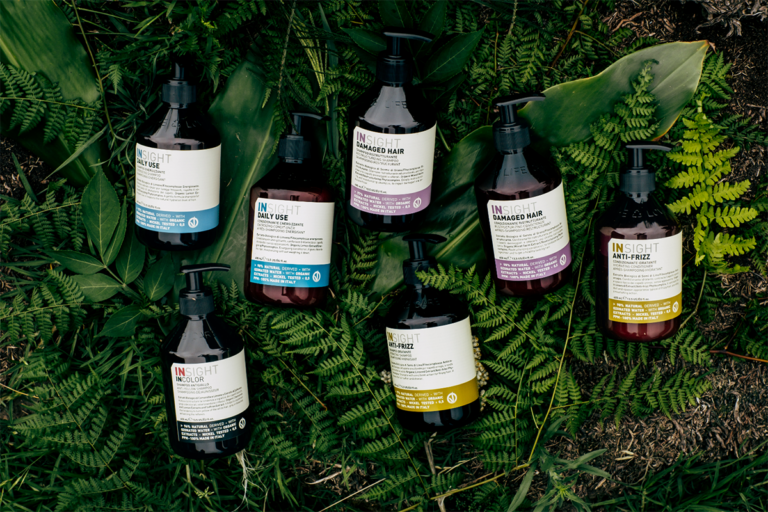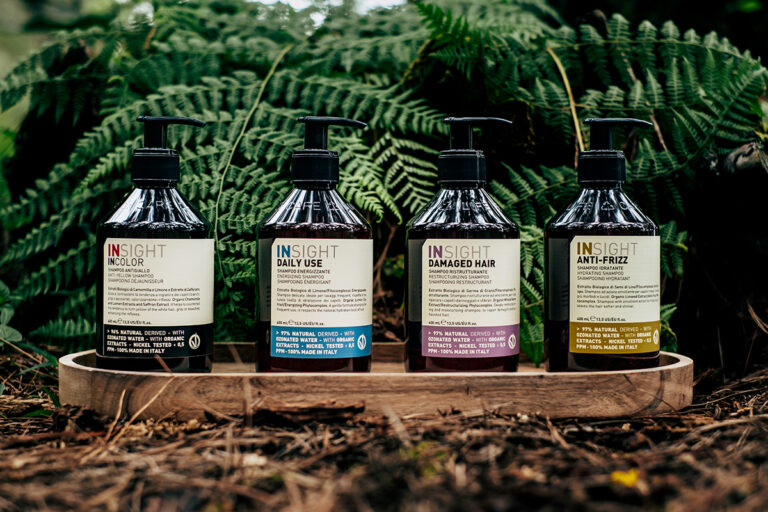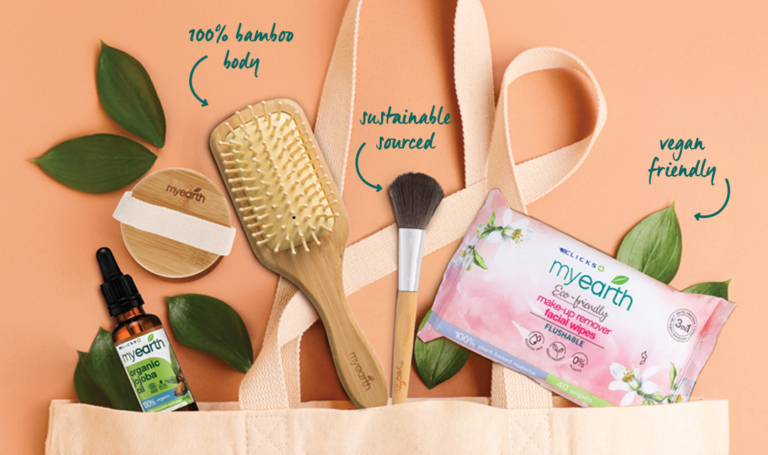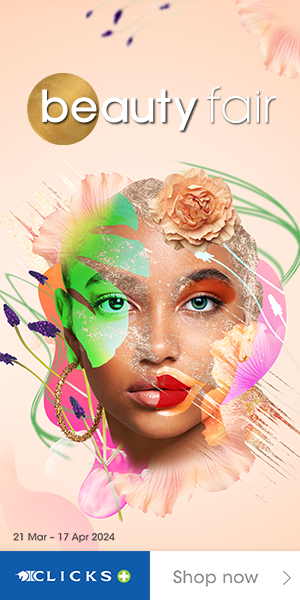
In the spirit of Earth month and International Earth Day on 22 April, we were inspired to assess our lifestyle and our carbon footprint. Much like limiting your water usage, it’s small changes that go a long way. Staying true to our beauty roots, going organic and using organic make-up is at the top of our list. Celebs like Jessica Alba, Emma Watson, Kate Hudson and Kourtney Kardashian all credit organic products to their youthful appearance and gorgeous glow.
Going organic not only makes you sound like you are part of Gwyneth Paltrow’s Goop posse, it has far-reaching effects on the environment and your skin will no doubt love the natural ingredients. We often don’t think about what we’re really putting onto our skin, and simply discard of plastic wrappers without giving it a second thought. It’s time to make a start and consciously try to incorporate greener alternatives.
Granted there’s more to eco-friendly make-up than reading the word “natural” on the box, and ”cruelty free” doesn’t necessarily mean it’s green, so we’re taking it slow and take you through a few ways to help you build up a make-up collection that’s great for both you and the environment.
Packaging
The best option would be to choose products without unnecessary outer packaging – a plastic-wrapped tub within a cellophane wrapped box is completely OTT. Also, check for packaging that can be recycled (that would be most cardboard boxes and plastic containers – but check if you have to peel off labels first) or reused.
Make-up tools
In this instance, synthetic generally means more environmentally friendly with regards to bristles and sponges. Synthetic brush bristles are mostly made of nylon or polyester, and good quality synthetic brushes have a long life – they are not affected by regular washing, and hardly any bristles will fall out.
Consider using an animal hair brush is for loose powder. Animal hair is coarser and thus grabs onto the powder, resulting in better application and less product wastage. Some animal hair brushes come with heavy ethical issues attached (think mink, squirrel), but there are brushes that are derived from combing/trimming the animal’s hair in a completely humane way.
Ethical ingredients
In the quest for all-natural ingredients, we sometimes forget that these resources can get depleted too. The Sandalwood tree, for example, is an endangered species in India (where it originates) due to overharvesting. If you use products containing Sandalwood oil, it’s worth checking where it comes from, as it is now farmed in other countries (Australia is one example) to provide the commercial market with essential oil in an ethical, legal way. Due to issues like these, most mass-produced perfumes use lab-manufactured components that smell like the real thing – and maybe that’s not such a bad thing.
Certification
There is no regulation on the use of the terms “natural” and “organic” in the cosmetic industry – it may be used to describe the look and feel of a product without having anything to do with the ingredients. If actual natural or organic ingredients are what you’re after, look for products that are certified as such.
Examples of Natural/Organic Certification bodies from around the world include SOiL, Ecocert, NSF, USDA, BDIH, CERTECH.
Close to home
Transporting products thousands of kilometers by air or sea has a definite impact on the environment (not to mention the cost of your product), so include some locally manufactured products in your make-up kit.
Where to start?
Lush: a range of fresh, locally-made organic beauty essentials and toiletries supporting ethical buying and “naked” packaging. Products are 100% vegetarian and they champion the fight against animal testing. The products are not only great for your skin, they smell amazing – and you can trade in old Lush containers for more goods!
The Body Shop: Beauty products, toiletries, and fragrances
Dr Hauschka: Colour cosmetics & brushes (BDIH certified natural)
Physician’s Formula: Check out the Organic Wear range of cosmetics and beauty products
AbsoluteSkin: A website stocking organic skincare brands such as Esse and African Extracts
Pure Beginnings: A proudly South African company offering organic care, with a great focus on kids
MilQ & Honey: A local hub of fashion, health and beauty, offering organic facials and an organic kitchen serving delectable treats.
SOiL: An eco-ethical range certified by ECO-Cert. SOiL was the first company in South Africa to sell a complete range of 100% certified organic essential oils, many of which are grown on their organic farm in Zululand. They pride themselves on using pure ingredients free from parabens and synthetic fragrances – all wrapped up in biodegradable packaging. We love how luxurious the Ugandan Shea Butter feels on our skin, along with the sweet citrus scent.
Have a browse under the make-up category on http://www.faithful-to-nature.co.za/ for some great natural and organic finds. It’s a good place to start since they list additional info about the products (whether they’re locally made/vegan/certified organic and so on).





3 Responses
Thank you for this informative article. I would however have added NYX and Essence to the list. Annique beauty products are also all natural and safe for the earth. Thank you for helping us care for our planet.
These are all nice brands but so pricey. Isn’t essence also eco-friendly?
I always try to buy eco-friendly and cruelty free make-up when I can and I’m always on the hunt to try new things. Never heard of milq and honey or SOiL. Definitely going to check them out.